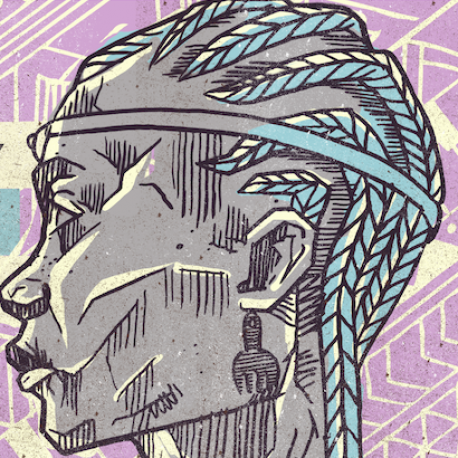
Racing the Classics
Thinking about diversity in the discipline of Classics has often meant imagining who comprises the audience in our classrooms and at our lectures. Addressing the changing demographics of the American academy and ensuring a racially and ethnically diverse pipeline are undoubtedly important in Classics and in many other fields, as the decision of the Society for Classical Studies to launch a new committee on diversity in the profession attests. But our discipline’s particular reputation—its perception as fundamentally exclusive and Eurocentric—demands even more. We need to look beyond representation if the Classics is to play a transformative role in higher education going forward. Those interested in the Classics today must create a future where scholarship that is committed to deconstructing the universalizing pretensions of the field as a cornerstone of “Western civilization” and to engaging critically the complexities of race and ethnicity thrives. This work has only gained in urgency in the aftermath of Charlottesville, where neo-fascist appropriations of Classics to legitimate white supremacy took center stage.
The first in a series, “Racing the Classics” brings together scholars whose work on ancient Greek and Roman culture has demonstrated a thorough consideration of race, ethnicity, and intersectionality to workshop writing and to build a critical feedback network for future projects.
Organized by Sasha-Mae Eccleston (Brown University) and Dan-el Padilla Peralta (Princeton University)
Sponsored by the Humanities Council (Princeton), the Departments of Classics at Princeton and Brown, the Princeton Institute for International and Regional Studies, and Postclassicisms
Image credit: Sindiso Nyoni
Schedule
Friday, March 16
8:45-9:30
Breakfast
9:30-10:30: Session One
Sasha-Mae Eccleston (Brown) and Dan-el Padilla Peralta (Princeton)
“Ethos and Praxis”
10:30-10:45
Break
10:45-11:45: Session Two
R. Futo Kennedy (Denison): “ ‘I Don’t See Race’ and Other Lies Historians Tell Ourselves”
L. Monteiro (Rutgers–Newark): “Temples to White Mastery: Antebellum Slave Plantations and the Construction of American Whiteness”
11:45-12:45
Lunch
1:00-2:15
Keynote #1: Emily Greenwood (Yale): “Classics and the Scramble for Diversity: Some Intellectual Foundations”
2:15-2:30
Break
2:30-3:30: Session Three
M. Folch (Columbia): “Political Prisoners in Democratic Athens”
H. Morse (Michigan): “Classics and the Alt-Right: A Visual History of White Supremacist and Anti-Racist Classical Aesthetics”
3:30-3:45
Break
3:45-4:45: Session Four
T. Hawkins (OSU): “How Sophocles Became a Haitian Writer: A Provocation”
C. Stark (Howard): “Misreading or Reworking? Refashioning the Classical Heroine in the Poetry of Phillis Wheatley and Cordelia Ray”
4:45-5:00
Break
5:00-6:00
Group Discussion: “Why Race Classics?”
Saturday, March 17
8:45-9:30
Coffee
9:30-10:30: Session Five
M. Hanses (Penn State): “W.E.B. Du Bois’s De Senectute”
J. Murray (Kentucky): “W.E.B. Du Bois’ The Quest of the Silver Fleece: The Education of Black Medea”
10:30-10:45
Break
10:45-11:45: Session Six
A. García (UC Riverside): “Tragically Mexican: The Colonial Residues of Rodolfo Usigli’s Mexican Poetics”
R. Andújar (KCL): “Racing ‘Latin American’ Encounters with the Classical”
11:45-12:45
Lunch
1:00-2:15
Keynote #2: Patrice Rankin (Richmond): “Race, Thauma, and Bewilderment: Reading White Supremacy and Black Self-Fashioning”
2:15-2:30
Break
2:30-3:30: Session Seven
H. Fertik (UNH): “Telling Stories, Sharing History: Greeks, Romans, and Africa in W.E.B. Du Bois’s Black Folk Then and Now”
A. Lecznar (UCL): “The Tower of the Past”
3:30-3:45
Break
3:45-4:45
Final Discussion: “Racing the Classics Hereafter”
